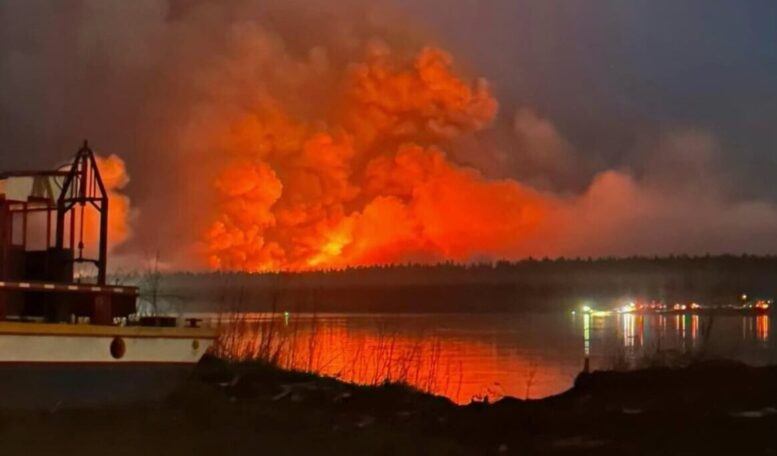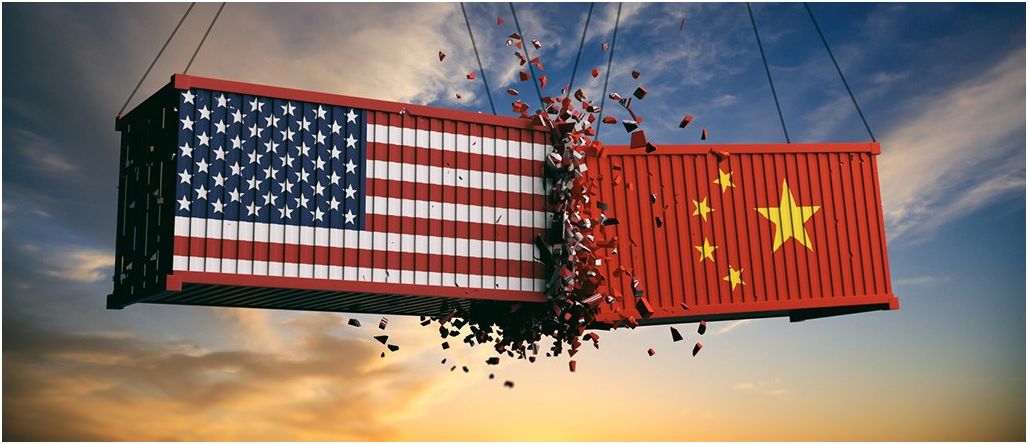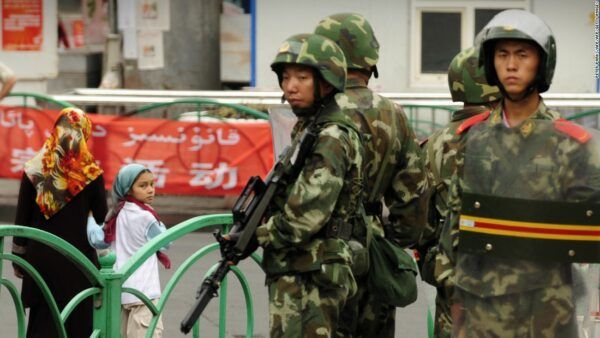Just over a year ago, the NDP was in front of the United Conservative Party (UCP) in every opinion poll, with an average lead of over 10 percent. Yet on May 29, the UCP won a majority of the votes (52.6 percent), and seats in the poll that matters: Alberta’s election.
In 2020 and 2021 the UCP was hated, and its factions were fighting each other. The then-leader Kenney had zig-zagged on public health policy throughout the most acute periods of the COVID pandemic. The UCP starved public services while giving billions to the fossil-fuel industry. At that time, the Alberta Federation of Labour (AFL) launched a campaign “Stand Up to Kenney,” calling for strikes and other actions to defeat the UCP. A campaign of mobilization with clear policies in support of public services and workers, with rallies across the province, would have built momentum against the UCP. Only a few months later, this campaign disappeared.
Alongside a campaign by the AFL, the NDP should have led a campaign against the UCP in an attempt to kick them out early, or at least build momentum well before this year’s election. While such campaigns by the NDP and the Alberta Federation of Labour might not have driven out the UCP, it would have built momentum and energy that could have flowed into the election. However, the NDP chose to stick to business-as-usual electoralism, snatching defeat from the jaws of victory by giving the UCP time to replace Kenney and reverse their fortunes, as Socialist Alternative previously warned against.
The Election Campaign
The campaign was a two-horse race — the UCP and the NDP — since the Liberals were obliterated in 2015. The vote of the former third-placed Alberta Party collapsed from nearly 172,000 in 2019 to only 12,715 in 2023. Alberta is now like the three other Western provinces with only two serious parties: the NDP, and a conservative party under whatever name.
Both campaigns concentrated on Calgary, as Edmonton overwhelmingly favours the NDP and the UCP dominates rural Alberta.
The NDP adopted the fatal strategy of trying to appeal to conservatives, or in their words, to be a party for “all Albertans.” The NDP promised to be “not the UCP,” focusing on the personal qualities of their leader, Rachel Notley, and on lambasting UCP leader Danielle Smith for controversial things she has said. This strategy never works against right-populist leaders: it failed against Doug Ford in Ontario and against Trump in 2016. In reality, this meant that the NDP avoided campaigning on radical policies (not even a minimum wage increase) and that they continue to drift toward bland, centrist policies like the “Kids Activity” tax credit.
The NDP had a plan to build 8,500 social housing units — why wasn’t this one of the pillars of their campaign? It would be one of the most significant investments in social housing in Canada ever since the federal Liberals stopped building social housing in 1993 and could go a long way toward fighting poverty and homelessness. Why didn’t the NDP promise to fully reverse the UCP’s corporate tax cuts and use the money to fund health care, education, and housing, and reverse all of the cuts to public services made by the UCP? Instead, they promised corporate tax credits, attempting to attract capital investment. The NDP used to be a party of the working class but has long since moved to the centre, confined by the logic of capitalism and unwilling to move beyond campaigning for incremental reforms. While the NDP made gains, the election was uninspiring as turnout was down from 2019, from 67.5 percent of eligible people voting to 62.4 percent.
Before the election, the UCP used high oil prices and provincial revenues to go on a spending spree — bribes. There were cash handouts to many — to compensate for inflation, breaks on fuel bills, and many new road projects. Such cash handouts, failing to address root issues, are merely flimsy flotation devices for Albertans drowning in debt and insecurity. No longer needing to win votes, the UCP will go on the offensive against the working class. The opening salvo against workers during the first year of UCP governance was horrific, as workers lost two statutory holidays, wages, union card check legislation, and many legal protections and guarantees.
The UCP focussed on its claims to provide jobs and a strong economy, combined with attacks on Trudeau and the federal Liberals, for their carbon tax, which the UCP blamed for boosting inflation. It was clear that the right-populist, anti-Trudeau mood permeating much of rural Alberta also impacted the way Alberta’s NDP is perceived, as Jagmeet Singh and the federal NDP, having supported the Liberals, seem to be the tail of the Liberal dog.
NDP Gains — but Not Enough
Final results are pending, but the UCP lost 14 seats, dropping from 63 to 49, and the NDP gained the same number of seats, increasing from 24 to 38. The UCP received 926,918 votes — 52.6 percent — only down 2.3 percent of total votes from 2019. The NDP received 776,188 votes — 44 percent of votes — up from 32.7 percent in the last election as all the small parties were wiped out. This was the highest number and share of votes ever won by the NDP. Its 2015 victory was partly due to the right-wing vote being split between Wildrose and the Conservatives.
The NDP swept Edmonton, taking the last remaining UCP seat. The UCP won all but three seats outside of Edmonton and Calgary. Lack of support in rural and smaller town constituencies makes it almost impossible for the NDP to win government. The NDP will need to adopt a bold program to overcome this serious obstacle and the appeal of right-populism, which saturates rural areas.
Calgary was split, with the NDP making gains, picking up 11 seats, but not enough either in votes or seats to win the province. Voters that Socialist Alternative talked to in Calgary were divided on fossil fuels, the economy, health care, and taxes. Many Albertans still see the oil and gas industry as the backbone of Alberta’s economy although it is shedding jobs and were very concerned about the future of the economy, and blame Notley and the NDP for the rough economy.
Suncor, a major oil sands company with profits of $2 billion in the first three months of 2023, cut 1,500 more jobs on June 1. While the announcement was probably delayed 3 days until after election, the UCP’s win did not save the jobs. It isn’t the NDP that destroys jobs, it is big business.
Those who supported the NDP were most concerned with increasing funding for public services including health care and education, and were worried about what Smith and the UCP would do with another term in office.
Danielle Smith
Smith is a right-wing populist, who has made many extreme statements such as comparing people who were vaccinated to supporters of Hitler. She brought forward the Alberta Sovereignty Act to challenge the federal structure of Canada.
In the struggle over the leadership of the UCP, Kenney said “the lunatics are trying to take over the asylum” but that he won’t let the party “become an agent for extreme, hateful, intolerant, bigoted and crazy views.” Clearly, Smith was one of the people he had in mind. But once Smith won the leadership, it was striking how much the UCP united behind her. There were very few defections of conservatives to the NDP, mostly old-school ones.
While the UCP stuck together to win the election, there are deep divisions that will surface in how to govern in Alberta. Take Back Alberta, an activist group in the UCP that is anti-vaccine, strong on conspiracy theories, and hopes to see an independent Alberta, has gained significant influence in the party, and is hostile to traditional conservatives.
The NDP tried to make criticisms of Smith a key plank of their strategy for victory, but it clearly failed. This is a warning to those who will try the same approach towards Pierre Poilievre, in the next federal election.
Danielle Smith has a long history of advocating for private health care and private education. Smith has promised that the Taxpayer Protection Amendment Act will be her first piece of legislation, which aims to prevent increases to personal and business taxes without a referendum and cut taxes on income between $22,000 and $142,292, which may save the average taxpayer $314 but would benefit higher-income earners and men more than lower-income earners and women. Conservative governments in Canada have a history of cutting taxes and royalty revenues and then cutting public services to “balance the budget.” The NDP could have countered the UCP on taxes by pledging a more progressive and equitable system, with reductions for the working class and large tax increases for corporations and the rich to fund public services. (The NDP did plan to raise corporate taxes to 11 percent, but it used to be 12 percent before the UCP slashed it to 8 percent — not exactly a full reversal.)
Smith was a lobbyist for the oil industry and has already given them a gift of a $100 million tax break to clean up old gas and oil wells that they are already required to do.
Looking Ahead in a Divided Province
Initially, some union activists and NDP supporters will be demoralized by the result and seek to blame voters, especially in rural areas. This fails to recognize the NDP did not run an inspiring campaign with bold policies. Their promise of a $15 minimum wage played a large role in their 2015 victory, but it now needs to be raised to at least $20. This election the NDP said nothing about a minimum wage increase.
Smith’s UCP will probably carry out more attacks on workers’ rights and public services. A move to widespread privatization of health services would likely provoke major opposition.
The UCP’s victory will embolden Premier Scott Moe in Saskatchewan to go further to the right. Both Premiers will oppose the federal Liberals’ weak and ineffectual policies on climate change. Beholden to fossil fuels and capitalism, their opposition will make it look like Trudeau is on the right track, even though the Liberals are actually planning to increase CO2 production. More fires and floods will ravage Canada.
It is certain the UCP will piss away yet another oil boom with no move to diversify the economy. When this oil boom ends, Alberta will be even more vulnerable to mass unemployment. The NDP hardly mentioned climate change in the election, afraid of UCP criticism. While putting forward a strong program for an energy transition that tackled climate disasters and the danger of relying on boom and bust commodities might not have won this election, it would have put the party in a strong position when this boom ends, or when even worse fires ravage the province.
Alberta is an increasingly polarized province. Even in 2019, Socialist Alternative wrote of A Tale of Two Provinces. Now the divide is even wider.
In the unlikely event that the NDP changes course and uses their new seats to lead a mass movement for radical reforms, they could dominate Alberta’s politics. Socialist Alternative fights for good jobs and services based on a diverse economy freed of the oil industry’s boom and bust.
Socialist Alternative campaigns for a party of the working class that fights for:
- Ending low pay. Raise the minimum wage to at least $20 an hour, with no exemptions, as a step towards a true living wage.
- Fighting against climate change and unemployment with a green jobs program. Massive public investment and well-paid union jobs in clean, renewable energy, retrofits, sustainable housing, freight and transport to rapidly replace fossil fuels. Guaranteed access to paid retraining for all workers in phased-out industries.
- A mass program to build and renovate decent, safe and affordable public housing run by tenants’ democracy. Protect renters and homeowners from housing speculators.
- No cuts to public services. Tax the super profits of the oil companies, reverse the UCP’s tax cuts and drastically increase taxes on the rich and big corporations, not working people. Fully fund public services.
- For fighting, democratic unions that are run by and for the membership to campaign for better pay and working conditions. Unions should demand cost-of-living adjustment (COLA) clauses in all union contracts, and open existing contracts to include COLA.




